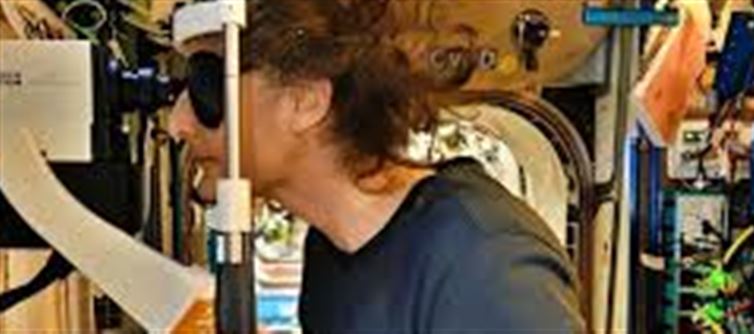Going to space is not an easy task, if astronauts are going on a
journey of six months or more, then that time is full of difficulties for them. After returning from space, astronauts have expressed concern over vision defects.
nasa is working on these problems. When astronauts start spending six months or more on the ISS, there are small but worrying changes in their vision, which have become impossible to ignore.
Many astronauts suddenly realized that they needed glasses with higher power. Then the team of doctors noticed swelling in the optic disc (where the optic nerve enters the retina) and slight flattening in the eyeball. These symptoms are known as space-related neuro-ocular syndrome (SANS).
How gravity affects the eyes
In the absence of gravity, blood and cerebrospinal fluid collect in the upper parts of the body and the head, which puts pressure on the brain and eyes. Due to which the eyesight can be reduced. According to the research being done by
nasa, which is named Thighcuff Experiment, it is being seen whether the flow of blood towards the upper part of the body can be stopped by tying something fast on the thighs. If this experiment proves successful, then it can be used in future lunar and
moon missions.
The structure of the eyes also changes
Actually, when astronauts are in space, due to lack of gravity, fluids accumulate towards the head. Due to this, there is pressure on the eyes and this changes the structure of the eyes and also affects the vision. When astronauts return to Earth, it takes time for them to adapt due to coming into gravity again. In this process, there is pressure on their eyes and the number of glasses increases.






















